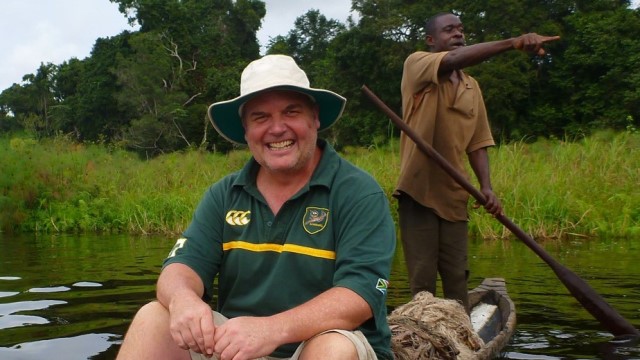
Director of the Rhodes University Centre for Biological Control (CBC), Distinguished Professor Martin Hill, has been elected to serve as President of the International Organization for Biological Control (IOBC) for a period of four years.
The IOBC, established in 1955, is considered to be the global authority and governing body for the promotion of environmentally-safe methods of pest and disease control. Prof Hill’s election marks the first time the organisation has had an African president and he is the first weed bio-controller to occupy this position. His new role will commence in mid-September 2020.
Said Prof Hill, “I am humbled and excited by the challenge. It is wonderful to be recognised by colleagues and peers who believe that I can make a positive contribution to such a large-scale international organisation.”
He continued, “Being the first African president of this organisation means that I can focus attention on bolstering biological control in the developing regions of the world. There are some great biological control initiatives that are happening in these regions, and they generally do not receive the same amount of attention as those in the more developed regions. This is significant, since the negative impact of pests and invasive weeds are often hardest felt in the developing world,” said Prof Hill.
Outgoing President George Heimpel, who is a Distinguished McKnight University Professor in the Department of Entomology at University of Minnesota, USA, said of Prof Hill: “Martin has done inspirational work using biological control to control aquatic weeds throughout Africa and documenting the multifaceted benefits of these programs.”
In an IOBC Global newsletter, while Prof Heimpel makes mention of the turbulent times under which Prof Hill’s Presidency is commencing, he also believes biological control can be a great contributor for mankind to better deal with disease and social inequality.
“As we are trying to adapt, some questions surely cross our minds as biological control researchers. What are the implications of all of this for our discipline? And how can we use our expertise and positions help confront the twin challenges of disease and discrimination?” he asked. “Although purely environmental questions may take a back seat to questions of public health and social policy during these times, we know that these themes are closely intertwined with environmental stewardship and sustainable food sources. Successful biological control solutions improve public health in many ways and thus help populations to be resilient to disease outbreaks, and these benefits extend more to underprivileged than privileged people throughout the world. In other words, we have to realise that we’ve been fighting these battles already and that the world is a better place than it would otherwise be because of our collective efforts.”
Prof Hill believes the biggest challenge facing this discipline involves taking the science from the lab bench into the field. “Biological control is going to become more and more important, especially in the developing world. One of the benchmarks to gauge our success would be to see how an increase in biological control activity reduces the amount of pesticides sprayed,” he stated.
In addition to the Global organisation, IOBC has 6 Regional Sections, including: Asia and the Pacific Regional Section; African Tropical Regional Section; East Palearctic Regional; Nearctic Regional Section; Neotropical Regional Section; and the West Palearctic Regional Section. Each Regional Section has its own President, Vice-Presidents, and Secretary/Treasurer. Rhodes University is the seat of the African Tropical Region Section and Esther Mostert of the CBC serves as this region’s Treasurer.
